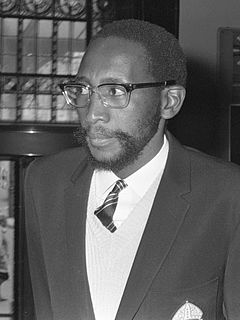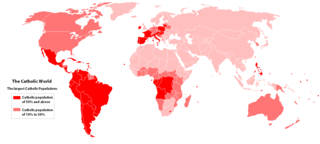
The history of people living in the area now known as Lesotho goes back as many as 40,000 years. The present Lesotho emerged as a single polity under paramount chief Moshoeshoe I in 1822. Under Moshoeshoe I, Basutoland joined other tribes in their struggle against the Lifaqane associated with the reign of Shaka Zulu from 1818 to 1828.

Politics of Lesotho takes place in a framework of a parliamentary representative democratic constitutional monarchy, whereby the Prime Minister of Lesotho is the head of government, and of a multi-party system. Executive power is exercised by the government. Legislative power is vested in both the government and the two chambers of Parliament, the Senate and the National Assembly. The Judiciary is independent of the executive and the legislature.

Maseru is the capital and largest city of Lesotho. It is also the capital of the Maseru District. Located on the Caledon River, Maseru lies directly on the Lesotho-South Africa border. Maseru is Lesotho's capital city with a population of 330,760 in the 2016 census. The city was established as a police camp and assigned as the capital after the country became a British protectorate in 1869. When the country achieved independence in 1966, Maseru retained its status as capital. The name of the city is a Sesotho word meaning "red sandstones".

Bethuel Pakalitha Mosisili is a former Mosotho politician who retired in January 2019. He was Prime Minister of Lesotho from May 1998 to June 2012 and again from March 2015 to June 2017. He led the Lesotho Congress for Democracy (LCD), to a near-total victory in the 1998 election, and under his leadership the party also won majorities in the 2002 and 2007 elections. While serving as Prime Minister, Mosisili was also Minister of Defense.

Moshoeshoe II, previously known as Constantine Bereng Seeiso, was the paramount chief of Lesotho, succeeding paramount chief Seeiso from 1960 until the country gained full independence from Britain in 1966. He was king of Lesotho from 1966 until his exile in 1990, and from 1995 until his death in 1996.

The current national flag of Lesotho, adopted on the 40th anniversary of Lesotho's independence on 4 October 2006, features a horizontal blue, white, and green tricolour with a black mokorotlo in the center. The design is intended to reflect a nation that is both peaceful internally and with its neighbour South Africa, replacing the old flag design that featured a military emblem of a shield, spear and knobkerrie.

Joseph Leabua Jonathan was the second Prime Minister of Lesotho. He succeeded Chief Sekhonyana Nehemia Maseribane following a by-election and held that post from 1965 to 1986.

Thomas Motsoahae "Tom" Thabane is a Mosotho politician who has been Prime Minister of Lesotho since June 2017. Previously he was Prime Minister from June 2012 to March 2015. He is leader of the All Basotho Convention (ABC) political party.
The Basutoland Congress Party is a pan-africanist and left-wing political party in Lesotho, led by Ntsukunyane Mphanya.

The National Assembly is the lower chamber of Lesotho's bicameral Parliament.
Clement Ntsu Sejabanana Mokhehle was a Lesotho politician. He served as the 3rd Prime Minister of the country from 2 April 1993 to 17 August 1994 and from 14 September 1994 to 29 May 1998.

The Catholic Church in Lesotho is part of the worldwide Catholic Church, under the spiritual leadership of the Pope in Rome. Approximately 90 percent of the population are Christians, of whom half are Catholics. Muslims, members of other non-Christian religions, and atheists constitute the remaining 10 percent. Christians are scattered throughout the country, while Muslims live mainly in the northeastern part of the country. Most practitioners of Islam are of Asian origin, while the majority of Christians are the indigenous Basotho.

The coat of arms of Lesotho was adopted on 4 October 1968 following independence. Pictured is a crocodile on a Basotho shield. This is the symbol of the dynasty of Lesotho's largest ethnicity, the Basotho. Behind the shield there are two crossed weapons, an assegai (lance) and a knobkierie (club). To the left and right of the shield are supporters of the shield, two Basutho horses. In the foreground there is a ribbon with the national motto of Lesotho: Khotso, Pula, Nala. The crocodile on the shield has been retained from the arms of Basutoland, the predecessor to Lesotho.
The British office of high commissioner for Southern Africa was responsible for governing British possessions in Southern Africa, latterly the protectorates Basutoland, the Bechuanaland Protectorate and Swaziland, as well as for relations with autonomous governments in the area.

Lesotho–United States relations are bilateral relations between the Kingdom of Lesotho and the United States of America.
The Diocese of Lesotho is a diocese in the Anglican Church of Southern Africa. It comprises the entire nation of Lesotho. It is divided in three archdeaconries, Central Lesotho, Northern Lesotho and Southern Lesotho. The current bishop is Adam Taaso, in office since 2008.

Lesotho–South Africa relations refers to the current and historical bilateral relations of South Africa and Lesotho. Lesotho, which is completely surrounded by South Africa, depends on South Africa for most of its economic affairs, and its foreign policy is often aligned with that of Pretoria. Both are member states of the Commonwealth of Nations, the Southern African Customs Union and the Southern African Development Community.

General elections were held in Lesotho on 27 and 28 January 1970, the first since independence in 1966. They were won by the opposition Basutoland Congress Party, but without announcing the results, the ruling Basotholand National Party carried out a coup d'état by declaring a state of emergency, annulling the election, dissolving parliament and suspending the constitution. King Moshoeshoe II was sent into exile after expressing disapproval of the actions.
Face of Lesotho is a national Beauty pageant in Lesotho.












